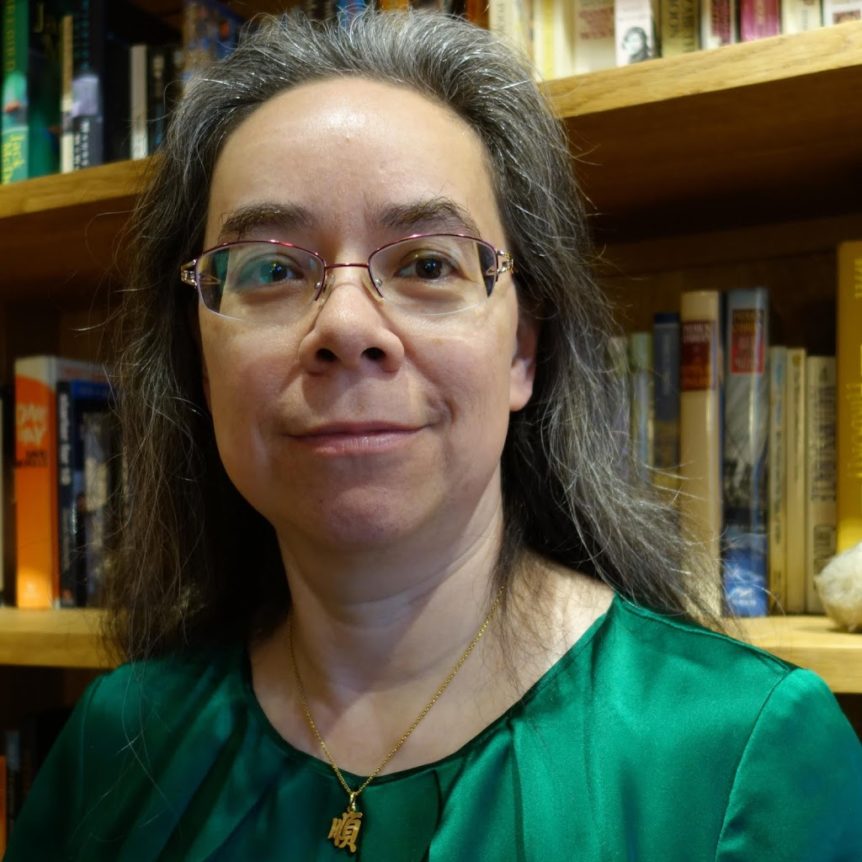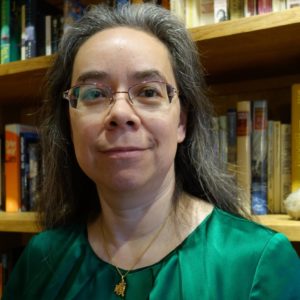Cross-posted from “A City of Salt and Fantasy” www.WFC2020.org
In recent years, there’s been an increasing awareness of the importance of diversity in fiction, including diversity in gender, sexual orientation, ethnicity, disability, wealth, and age. Along with this has come a discussion of own voices, and the extent to which it matters whether a story about, for instance, a lesbian unicorn, is written by a lesbian. Alas, I have yet to find a unicorn story written by a unicorn, lesbian or otherwise.
As an author who is half-Asian, half-European, a person who grew up in London, but whose parents grew up in Penang (Malaysia) and Dublin (Ireland), I’m not that sure what my own voice is. I struggle to describe the backdrop for some of my work: do I say it is Asian-inspired, that it contains Asian elements, or that it draws upon Asian culture? It might be more accurate to say that – like me – it’s halfway there.
The longest project I’ve completed to date is an epic fantasy, approximately one hundred thousand words long, told in poems. It doesn’t fit neatly into boxes. It’s not a conventional novel, because it is rendered in poems. Those poems are mostly free verse, lacking rhyme and meter, the kind of poems that aren’t always considered “real” poetry. For mainstream poetry audiences, it doesn’t help that the story features dragons, demons, monsters, and a form of horse magic. And the secondary-world setting mixes together Chinese and Celtic elements as filtered through the lens of someone who is more of a Londoner than she is either Chinese or Irish.
The project, The Sign of the Dragon, is unquestionably a hodgepodge work. It’s also the single thing I’ve written that matters most to me. It began with one poem, a poem written without forethought or planning, at a time when I was returning to fantasy after a decade wandering in the land of mainstream poetry. In the poem, a sixteen-year-old boy is sent to a mountain with his older brothers after their father, the king, dies. His older brothers head into the snow, one after another, and vanish. And then the sixteen-year-old heads into the snow in his turn, where he meets a dragon and becomes the new king. (This poem, and several others from the story, may be found on my website: http://www.marysoonlee.com .)
At the time, I was concentrating on standalone poems, those I could conveniently complete during the daytime while my children were at school. But I found myself drawn to the boy, and returned to write more and more poems about him, over three hundred in the end. In the fourth of those poems, I named my main character Xau, and with that uncalculated choice, his amorphous country shifted toward China. A couple of months later, also without premeditation, I named his first enemy Donal, and the corresponding country shifted toward the Celtic. These things arose without a plan, out of the deeper, hodgepodge, halfway place that I come from.
Reading remains my number one pursuit, ahead even of writing. As a reader, I enjoy diversity in a multiplicity of flavors, whether it connects to my own experiences or not. To give a very few examples: recently I’ve been loving LGBTQ fantasies, from JY Yang’s Tensorate novellas, to K. D. Edwards Tarot Sequence, to T. Frohock’s Los Nefilim stories. And in Asian-flavored fantasy, I’ve loved ranging from the old, including Chinese classics such as the The Journey to the West, to the new, including work by Fonda Lee, Guy Gavriel Kay, and Aliette de Bodard.
While I lack the expertise to offer authoritative judgments on the current state of diversity in the publishing industry, I can report that I have found homes for some of my own Asian-flavored work, including short stories that appeared in Fireside and Daily Science Fiction. And I think it’s a promising sign that The Three-Body Problem by Liu Cixin – as translated from Chinese to English by Ken Liu – won the Hugo Award in 2015. As for The Sign of the Dragon itself, an early version of the first fifth of the narrative was published by Dark Renaissance Books. I’m currently looking into publishing options for the whole story.
The future of fantasy fiction depends on readers, writers, and publishers. Here’s hoping it’s rich and diverse, open to authors who share their own experiences through their work, as well as to those who write with empathy and understanding about unicorns, dragons, and others different from themselves.
Mary Soon Lee was born and raised in London, but has lived in Pittsburgh for over twenty years. She writes both fiction and poetry, and has won the Rhysling Award and the Elgin Award. Of late, she’s strayed from fantasy and science fiction to science poetry, and her book Elemental Haiku (containing haiku for each element of the periodic table) was published by Ten Speed Press in October 2019.
Connect with Mary on Twitter @MarySoonLee. You can meet her in person at World Fantasy Convention 2020 in Salt Lake City. Look for her there and be sure to tell her you read her blog post!



